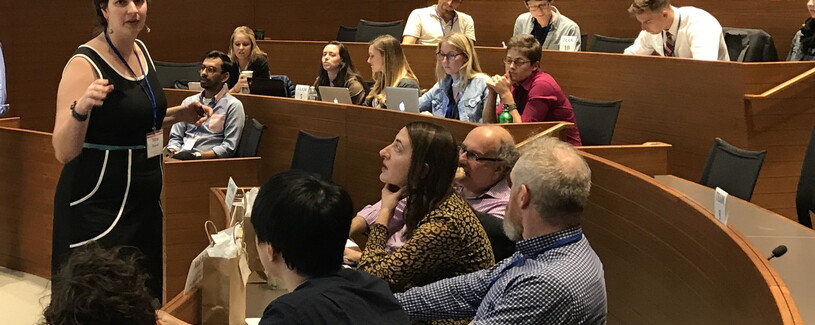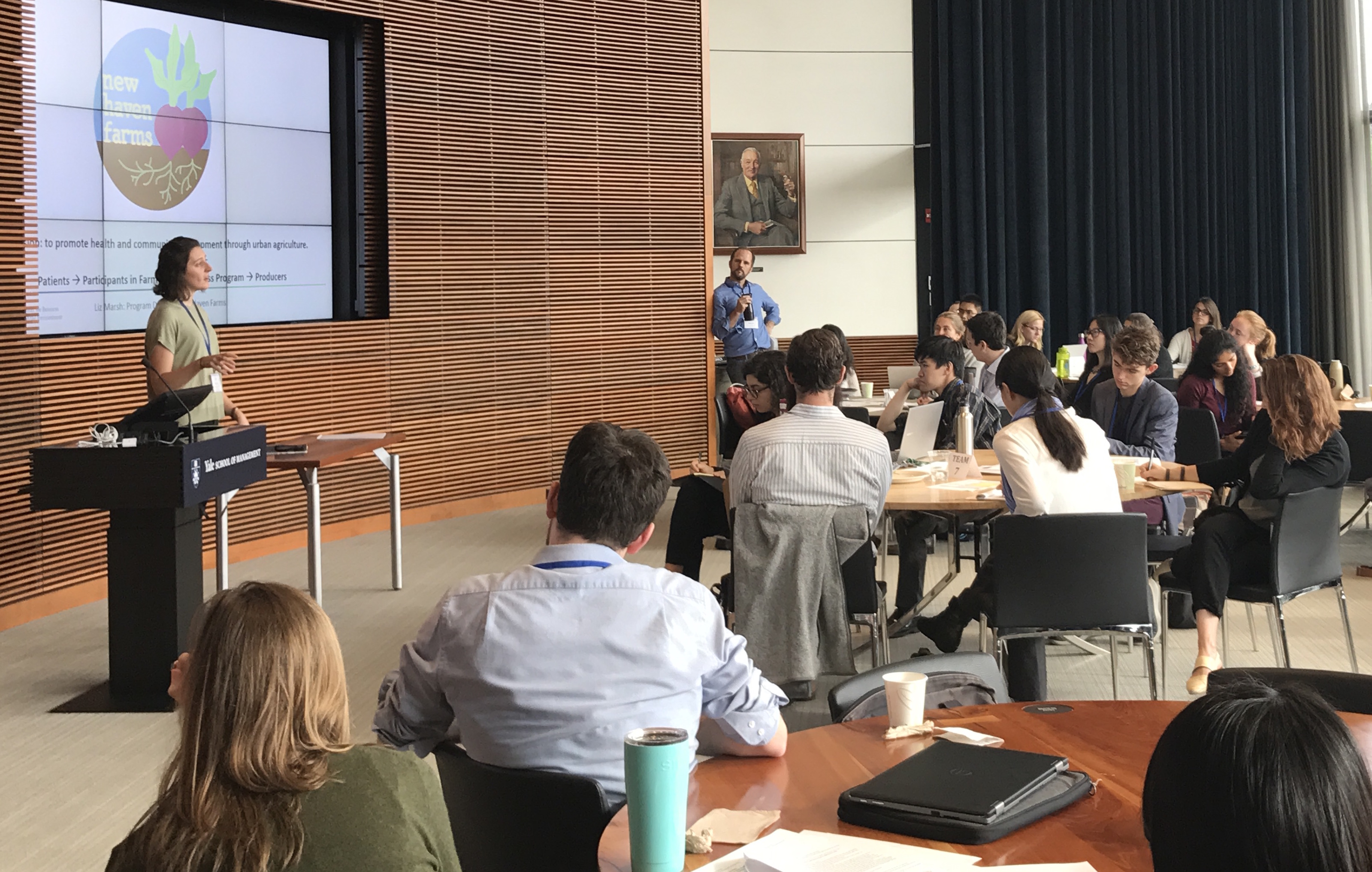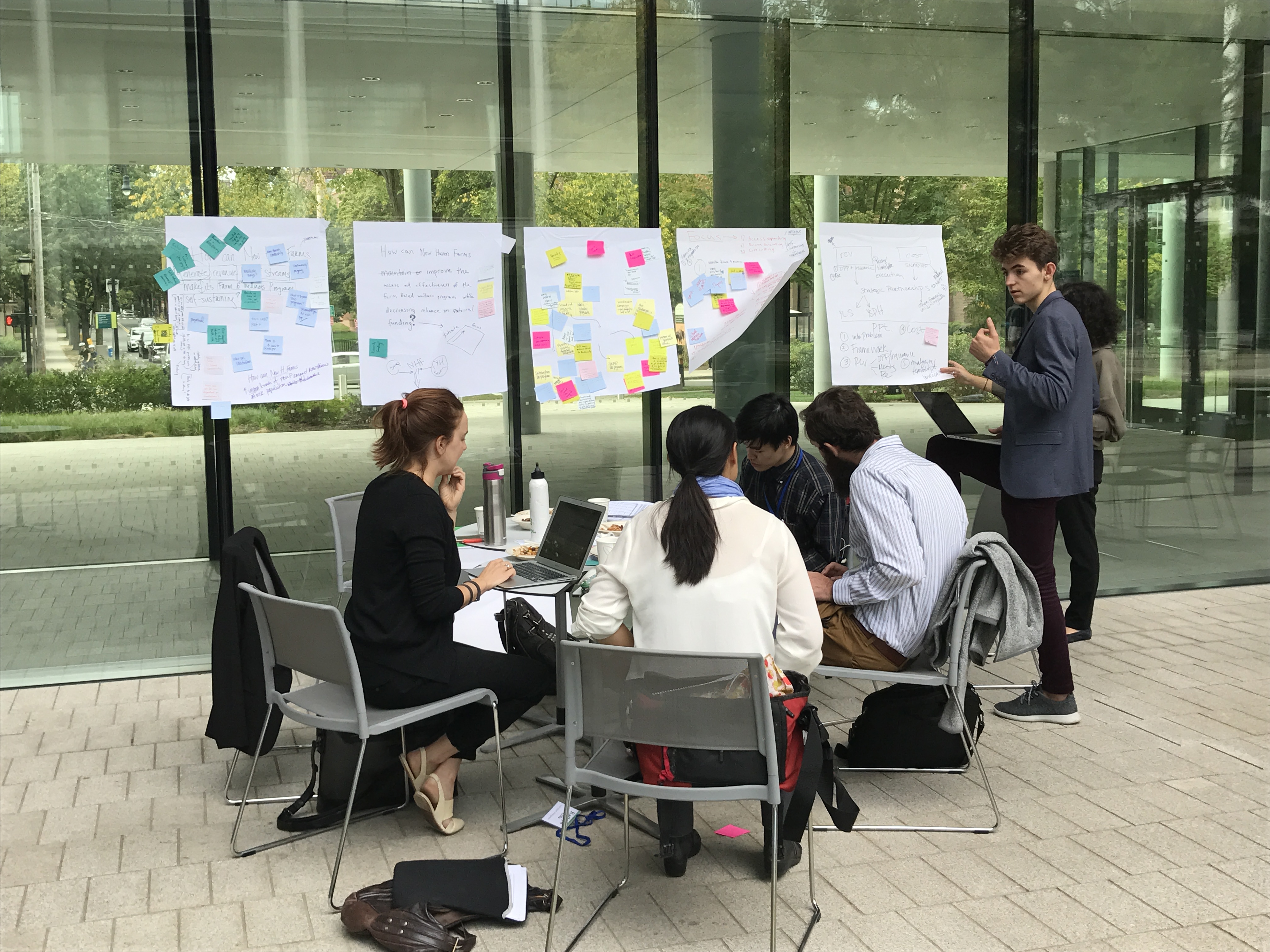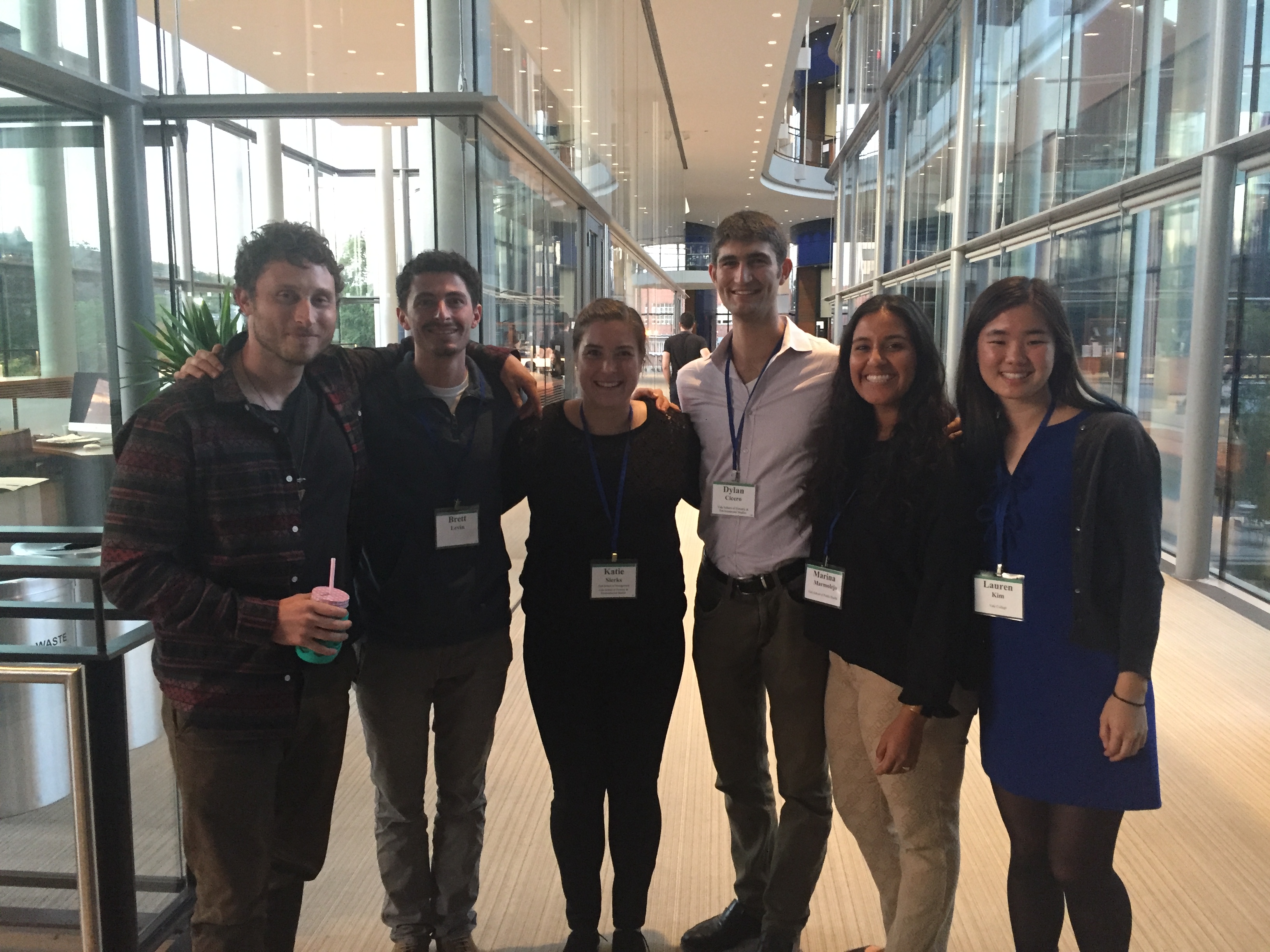Food and community: reflections from the Environmental Solutions Accelerator

Last spring, Sara Harari, a second-year joint degree student at Yale School of Forestry & Environmental Studies and Yale School of Management, had a question for CBEY: How can we bring students from across Yale together to consider big challenges in sustainability?
On October 7th, that fledgling idea became a reality at the inaugural Yale Environmental Solutions Accelerator held at Evans Hall. Over 60 students from across Yale’s campus came together to consider environmental challenges being faced by three local organizations: New Haven Farms, New Haven Land Trust, and CitySeed’s Mobile Market.

New Haven Farms presents to the crowd of student participants
At this hackathon-style event, students worked in interdisciplinary teams to dig deep into a food-related challenge each local organization is currently facing: activating New Haven Land Trust’s gardens as community hubs; moving New Haven Farms’ wellness program to become self-sustaining; and making the broader New Haven community more aware of CitySeed’s Mobile Market.
“The students brought remarkable energy to the event. It was great to see the interdisciplinary teams working together because they were able to develop solutions that pulled from such diverse knowledge bases,” said Harari.
Rodrigo Canales, Associate Professor of Organizational Behavior at Yale School of Management, opened the conference with a discussion on the value of working in interdisciplinary teams and listening with empathy to identify the true questions that need to be answered at the community level. After hearing from members of each organization discuss the specific challenges they are facing, teams jump-started their work with an ideation session led by fellow students from Yale GreenLight.

As they worked on solutions, teams were able to meet with mentors at the “genius bar” – a diverse set of people knowledgeable in land use, urban environments, community supported agriculture, legal issues, finance, grants, design, communications, startups, food culture and more.
With only three hours to develop their pitch, students worked under time pressure to focus on one idea and deliver a five-minute presentation to a panel of judges, including:
- Mark Bomford, Director, Yale Sustainable Food Program
- Tagan Engel, Executive Producer, The Table Underground; Food Systems & Community Development Consultant
- Faith Fennelly CEO & Founder of Bridgeport Blossoms / Grants Manager Newman's Own Foundation
- Barry Nalebuff , Milton Steinbach Professor, Yale School of Management
- Yong Zhao, CEO of Junzi Kitchen
Twelve teams pitched ideas that included creating a “passport” system to increase participation in events, creative sponsorship packages with tax incentives, and data-driven solutions for optimizing events and communications.

Garden Manager at the New Haven Land Trust
In the end, the judges selected a pitch aimed at helping New Haven Land Trust increase community involvement using input from local garden coordinators and GIS data to create highly appealing in-garden events for local residents. For example, considering the demographics of a particular neighborhood, the team suggested a “plotluck” dinner where community members can enter favorite dishes into a friendly competition and participate in a planting activity as an event that is likely to appeal to people living nearby.
The winning team was comprised of:
Dylan Cicero (F&ES), Lauren Kim (Yale College), Brett Levin (F&ES), Marina Marmolejo (Public Health), and Katie Sierks (SOM/F&ES).
New Haven Land Trust will receive a $3000 grant, as well as other resources such as mentorship, to work with this team of students and bring this idea into action.
"We have been talking for years about how we can get more people involved in our community gardens as centers of neighborhood activity,” said Justin Elicker, Executive Director at the New Haven Land Trust. “The Environmental Solutions Accelerator helped us rethink this question and consider ways we had never imagined to activate our sites as community gathering spaces. We are excited to collaborate with the other participating non-profits and use the winning funds to host more events and gatherings in our gardens based on ideas generated from the Accelerator,” said Elicker.
This event was sponsored by The Yale Center for Business and the Environment, Tsai CITY, and The Yale Office of Sustainability.